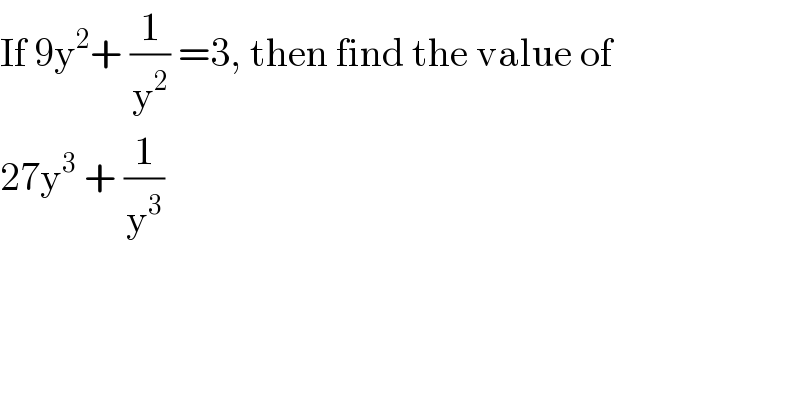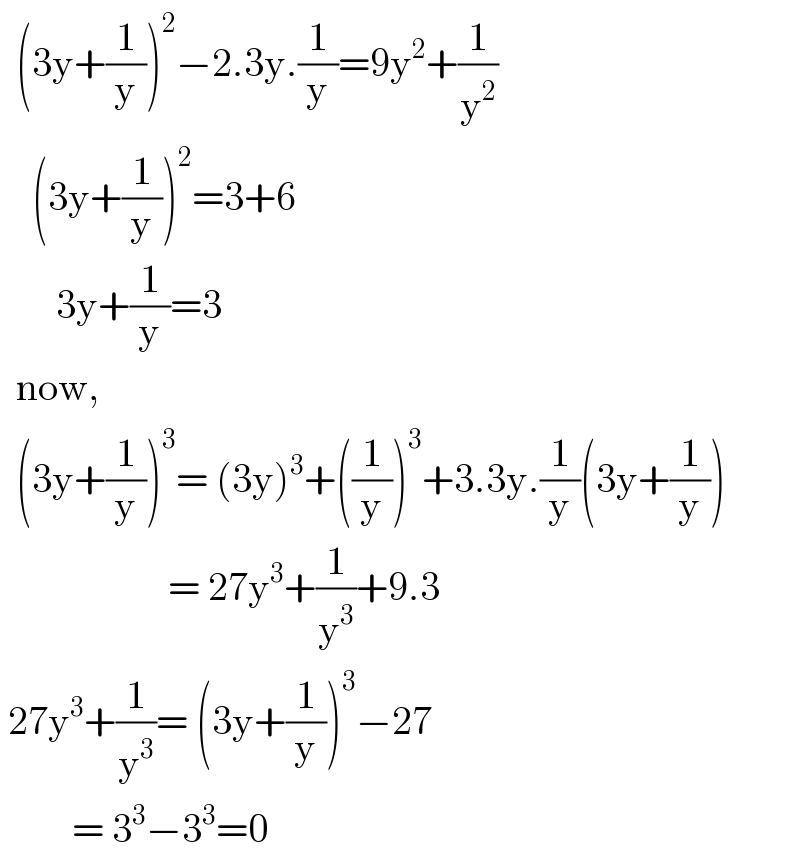
Question and Answers Forum
Question Number 94257 by pete last updated on 17/May/20

Answered by niroj last updated on 17/May/20

Commented by pete last updated on 17/May/20

Commented by niroj last updated on 17/May/20
������
Answered by Ar Brandon last updated on 17/May/20
![(3y)^2 +((1/y))^2 =(3y+(1/y))^2 −6=3 ⇒3y+(1/y)=±3 ⇒27y^3 +(1/y^3 )=(3y+(1/y))[(3y+(1/y))^2 −9]=(±3)[(±3)^2 −9]=0](Q94262.png)
Commented by pete last updated on 17/May/20

